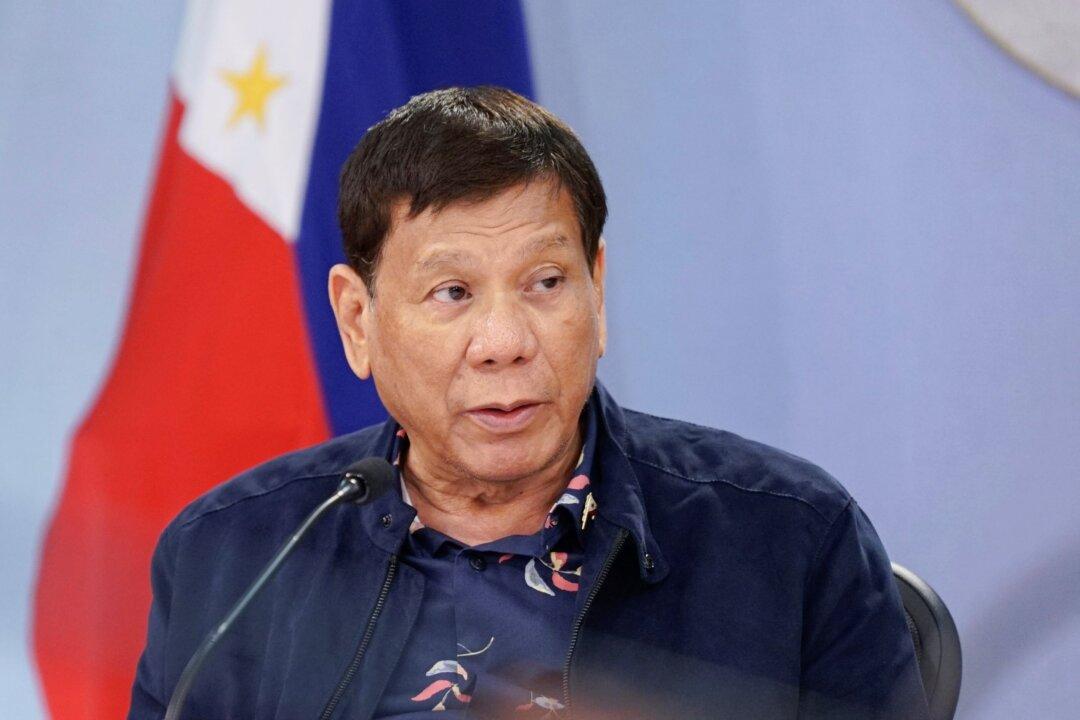Philippine President Rodrigo Duterte on Tuesday has pulled out of the 2022 senate race to ensure “orderly and peaceful elections,” Duterte’s acting spokesman said, following his preferred successor’s official withdrawal from the presidential race.
Duterte, 76, is barred by the Philippines constitution to seek reelection as president. He announced his retirement from politics in October, before making a last-minute entry into the senatorial race.





